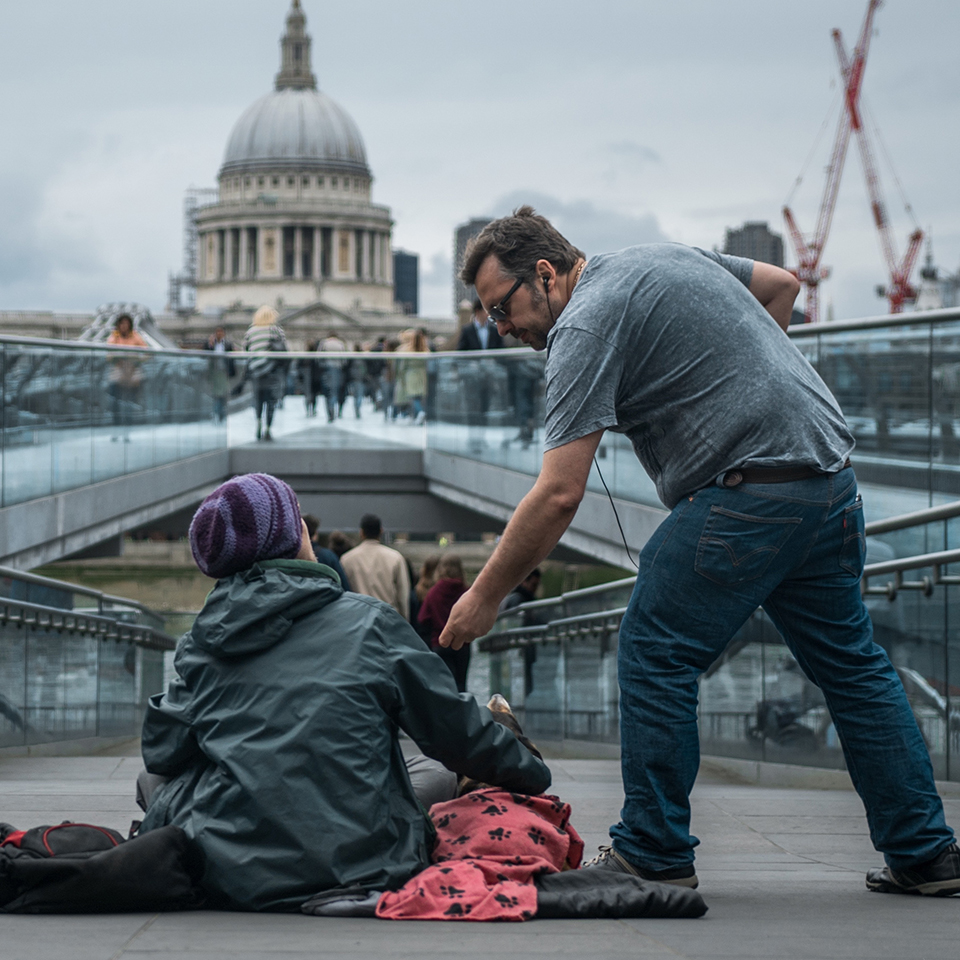“We men and women are all in the same boat, upon a stormy sea. We owe to each other a terrible and tragic loyalty.”
– G.K. Chesterton
We live in a merciless age.
Gone are the days of the uncalculating kind word, the politely doffed hat, and the deferential door-opening. No longer is it customary for the young to offer their bus seat to an elder, for the rushing commuter to allow someone to merge, or for the unconsciously offered “please” and timely penned thank-you note. When any of this does happen, it is the exception and not the rule. Flatly counter-cultural instead of cultural.
Sadly, our conversation is even worse. People talk all the time and rarely listen. And when they do “listen,” they process nothing their interlocutor is offering. Instead, they simply stay silent while crafting their next rebuttal or riposte. It is a monologue of smugness, certainty and unapologetic self-satisfaction. Those with whom we disagree are no longer considered earnest intellectual sparring partners, but instead are our enemies. Once, on any given issue, the continuum of opinions in search of truth were explored and appreciated for their intriguing evolution and thoughtful nuance. Now, they are harshly dismissed. If you are not with us, you are against us. If you are on the road to “right,” you are still wrong. The practice of persuasion, the touch of charm, the warmth of engagement have been exiled. Anger is argument. Outrage is standard currency. Indignation is relished.
We live in a time that has forgotten about mercy. It is conviction without pardon, judgment without grace. There is nothing excusable. Thoughtless words, we are told, cannot be unsaid. Historical mistakes, we are taught, cannot be contextualized. Running afoul of the bien pensant orthodoxy is simply unforgivable. You will be chastised, mobbed, crushed, or exiled. Justice, we are instructed, dictates it. You will be saved only by being destroyed. Dostoevsky’s Grand Inquisitor would be pleased with modern times. And so would Joseph Stalin, the man of infinite purges who literally erased his comrades from photographs for their perceived transgressions. His eerie philosophy of eradicating the enemy along with his ideas echoes in today’s intolerant world. As Russian author Anatoly Rybakov summarizes Stalin’s hellishly dismissive worldview, “No man, no problem.”
This is no way to arrive at Truth.
This is no way to be treated.
This is no way to treat our brothers and sisters.
We are not perfect. Not one of us. We will make mistakes again and again. True, we are dignified, but we are fallen. And yet, in the merciful eyes of God, we are deemed worthy of redemption. That should give us great pause. Instead of haughtiness and entitlement, we should be consumed by humility and gratitude.
As Russian dissident Aleksandr Solzhenitsyn would discover in the crushing despair of the Soviet gulag, “Gradually it was disclosed to me that the line separating good and evil passes not through states, nor between classes, nor between political parties either—but right through every human heart—and through all human hearts.”
Just consider what Christ told us again and again about our brokenness and the imperative for mercy:
Let the one among you who is without sin be the first to throw a stone… (John 8:7)
Why do you notice the splinter in your brother’s eye, but do not perceive the wooden beam in your own eye? (Matthew 7:3)
Then Peter approaching asked him, “Lord, if my brother sins against me, how often must I forgive him? As many as seven times?”Jesus answered, “I say to you, not seven times but seventy-seven times.” (Matthew 18:21-22)
But I say to you, whoever is angry with his brother will be liable to judgment,and whoever says to his brother, ‘Raqa,’ will be answerable to the Sanhedrin, and whoever says, ‘You fool,’ will be liable to fiery Gehenna. Therefore, if you bring your gift to the altar, and there recall that your brother has anything against you, leave your gift there at the altar, go first and be reconciled with your brother, and then come and offer your gift. (Matthew 5: 22-24)
[T]here will be more joy in heaven over one sinner who repents than over ninety-nine righteous people who have no need of repentance. (Luke 15:7)
Earlier this year, we were moved to see an eighteen-year old Brandt Jean, brother of Botham Jean who was shot and killed by police officer Amber Guyger, ask if he could give Officer Guyger a hug during his victim impact statement. “I love you as a person,” Brandt told her as she shook weeping in his arms, “and I don’t wish anything bad on you.” In a pure moment of unadulterated compassion, the angry chants of “No justice, no peace!” were silenced. What rage can penetrate such a sublime fortress of grace?
C.S. Lewis reminds us in our righteous indignation that the grace we offer, the mercy we extend is an extension of the grace and mercy we have first received.
“Forgiving does not mean excusing…To be a Christian means to forgive the inexcusable, because God has forgiven the inexcusable in you.”
So today — right now — let’s begin again. Let’s open the door for another. Let’s smile and say thank you. Let’s pay that genuine compliment. Let’s truly listen and humbly give another their due. Let’s forgive and forget. Let’s leave behind arrogance and rediscover humility. Let’s abandon outrage and embrace gratitude.
Let’s bring a little mercy back to a merciless age.
